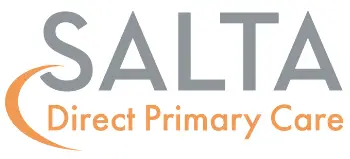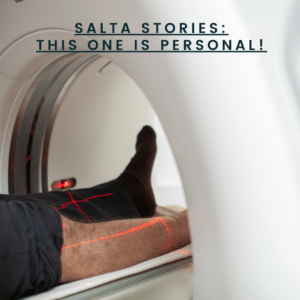Hello everybody, and welcome back to the COVID Camper! This is John Blanchard from SALTA Direct Primary Care. Today is April 20th and it’s the 27th day in the camper. A lot of the questions that we are getting in the office is about antibody testing. You are going to hear a lot about antibody testing in the news and this is a test that’s increasingly available in your doctor’s office.
One of the things that you really want to try to understand is the accuracy of the test. There are a lot of testing being imported from China and other places that don’t have the sensitivity and the specificity to be a reliable test and what that means is, is the test accurate? Is there a high false positive rate or a high false negative rate? Meaning if you have antibodies and it doesn’t show up in the test so that would be a false negative rate. Or if you have antibodies proved in the test but you really don’t have the antibodies this would be a false positive rate. You want to ask your doctor how accurate the test is. Note these tests have not been approved by the FDA, they are being approved on an emergency basis to be used, but they may not give you the accurate results that you hope for.
Another thing we need to understand is that we don’t know at this point if the antibodies confer an immunity. This meaning it’s possible that you could have antibodies and still get infected. We don’t know if the antibodies are going to protect people or not. So, there are limitation to this test, you want to find out if the test was manufactured in China, how accurate the test is, and how reliable it is. There is testing being produced in the United States that are not FDA approved yet, but they are being used in doctor’s offices that have a better reliability. I think it is important that we recognize that there are some limitations here. The other thing is that any test is only as good as the population that it is being tested on. The rate of the illness in the population that’s being tested. So, if we use this antibody test to check for antibodies for someone who is asymptomatic who have not had any symptoms the likelihood of the disease in this population will be lower and reduce the positive predictive value and the negative predictive value of the test. This is kind of a hard concept to understand but the point is that the antibody testing is best used at this point in people that have had symptoms so that it is being used on a population of people that have a higher likelihood of having the condition in that population and makes the test more reliable. You shouldn’t go out and rush to check your antibodies if you have not had symptoms because it may make the test less reliable. The tests already might not have a very high reliability rate, so it is something you want to talk to your doctor about and really understand.
One of the positive things that I hope comes out of this is the mindfulness. I hope people being to pay more attention to and managing their stress and anxiousness and we’ve talked about how we can fall into thought distortions and there are many different thought distortions that we have covered in these videos. We have covered black and white thinking, personalization, should statements, catastrophizing, and magnifying. Today I want to talk about minimizing. Sometimes people will have a positive thing that happens in their life, and they will minimize it. We tend think and focus on the things that put us at risk or that cause anxiousness, but we tend to not notice or minimize the things that are positive in our lives. An example might be that a person gets a raise, and they say to themselves, “well the raise should have been bigger, and I am not that good at my job. If I was better at my job, I would have received a larger raise”, instead of seeing it as a positive thing in their life. Minimizing is a thought distortion that can lead to more anxiety, and we must catch ourselves in these thought distortions and then stop ourselves and think about it in a more positive and accurate way.
One of the ways that direct primary care works for me is that I can partner with my patients to obtain optimal health in their lives. If you think about our lives, we want to live a long and happy life and in to do that we need our health. If we don’t have our health, it is hard to achieve all the things we want to achieve in life and experience all the things we want to experience in life. I think even after age 50 people start thinking about prioritizing their health a little bit higher on the priority list. They may be further down the long in their careers or their children are getting older, and they recognize, “boy I have worked hard my entire life and I need to maintain my health into my older age so that I can achieve and experience in my life”. They think about these things and think maybe about spending time with grandchildren or traveling or continue to work in a career or maybe a second career. All these things require us to be healthy and a lot of times in our 20s, 30s, and 40s we tend to put ourselves down on the priority list. Direct primary care allows you to partner with a health professional to work together and achieve optimal health. We don’t want a long history of declining health; we want a history knowing we are healthy and fit into our older years and then pass away without having a long and prolonged period when we’re not able to do the things we want to do.
If you want to learn how direct primary care can work for you, feel free to call Kyle at 248.922.3076. Kyle can answer all your questions and see what six of our locations is best for you or your company near you! You can also follow us on Facebook @salta_directprimarycare. OR you can search us on Google stating, “direct primary care near me!” or join right on our website at saltadirect.com
Stay safe out there! Love each other and we will see you again soon!




